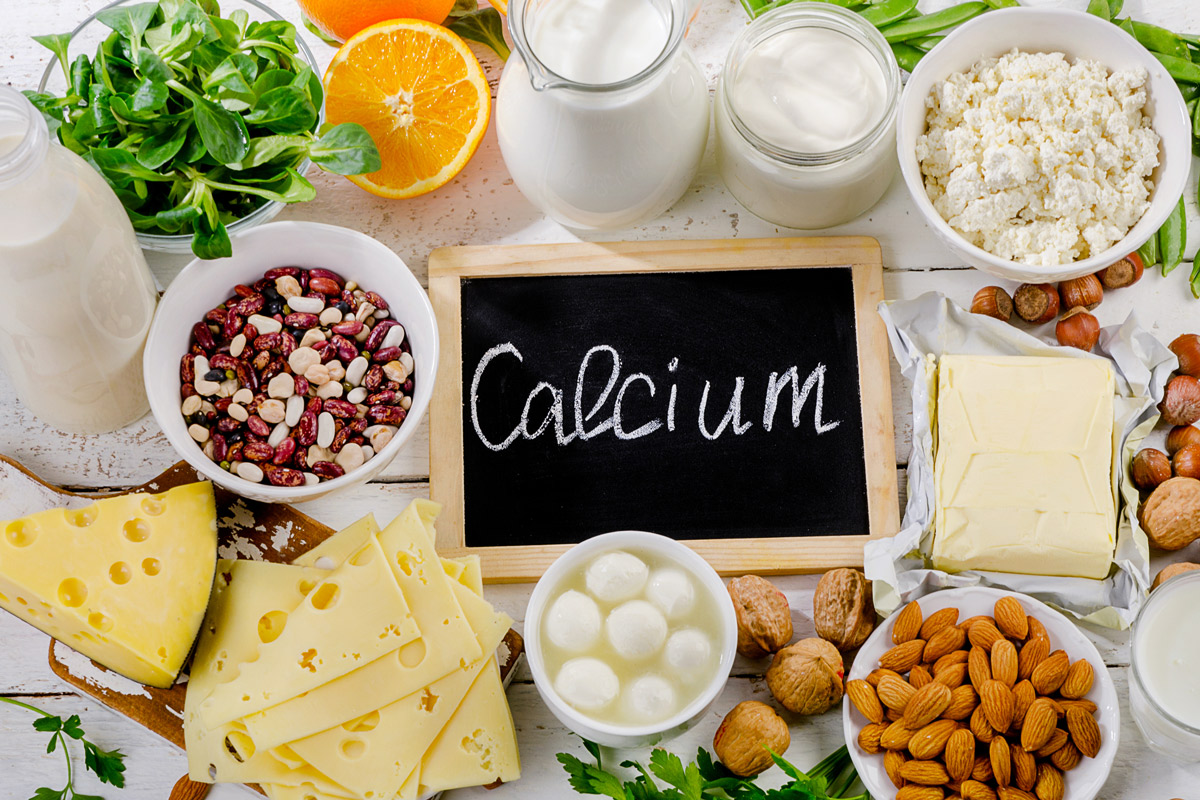Health Benefits of calcium
Benefits of calcium are quite enormous because it is an essential mineral required by the body for a wide range of functions, including the formation and maintenance of strong bones and teeth, nerve function, muscle function, blood clotting, and proper heart function.
In this article, we will discuss in detail the benefits of calcium and why the body needs calcium, its sources, how much is needed, and the risks associated with inadequate calcium intake.
Benefits (Functions In The Body)
• Bone Health:
Calcium is essential for the development and maintenance of strong bones and teeth. Bones are living tissues that are continuously being broken down and rebuilt throughout life.
Adequate calcium intake helps to ensure that bones are strong and dense enough to withstand the daily wear and tear they experience.
In addition, calcium is required for the proper functioning of bone cells, which regulate the release and absorption of calcium and other minerals.
• Muscle and Nerve Function:
One of the benefits of calcium is that calcium plays a crucial role in muscle and nerve function. It is required for the transmission of nerve impulses from the brain to the muscles, which allows us to move and perform various physical activities. Calcium also helps muscles to contract and relax properly.
• Blood Clotting:
Calcium is necessary for the process of blood clotting. When a blood vessel is injured, the body uses calcium to form a blood clot, which helps to stop bleeding and promote healing.
• Heart Function:
Calcium is also required for proper heart function. It helps to regulate the contraction and relaxation of the heart muscles, which ensures that the heart beats regularly and effectively.
Sources of Calcium
Calcium is found in a variety of foods, including dairy products, leafy green vegetables, nuts, seeds, and fortified foods. Some common sources of calcium include:
• Dairy products such as milk, cheese, and yogurt
• Leafy green vegetables such as kale, broccoli, and spinach
• Nuts and seeds such as almonds, sesame seeds, and chia seeds
• Fortified foods such as breakfast cereals and orange juice
How Much Calcium is Needed?
The amount of calcium needed by the body varies depending on age, gender, and other factors. The recommended daily intake of calcium for adults is 1000-1200 milligrams per day.
Women over the age of 50 and men over the age of 70 may require higher amounts of calcium. Pregnant and breastfeeding women also need more calcium to support the development of their baby’s bones.
Risks of Inadequate Calcium Intake
Inadequate calcium intake can lead to a variety of health problems, including:
• Osteoporosis: Osteoporosis is a condition in which bones become weak and brittle, making them more prone to fractures. Inadequate calcium intake can contribute to the development of osteoporosis.
• Muscle and Nerve Problems: Calcium is required for proper muscle and nerve function. Inadequate calcium intake can lead to muscle cramps, spasms, and weakness, as well as numbness and tingling in the hands and feet.
• Blood Clotting Disorders: Without adequate calcium, the body may not be able to form blood clots properly, which can lead to excessive bleeding and bruising.
• Heart Problems: Calcium is required for proper heart function. Inadequate calcium intake can increase the risk of heart disease and other cardiovascular problems.
Health Benefits of Calcium
Calcium for Strong Bones and Teeth
Calcium is best known for its role in building strong bones and teeth. Our bones are constantly being broken down and rebuilt in a process known as remodeling.
Calcium is one of the key minerals that our body uses to build new bone tissue. Without enough calcium, bones become weak and brittle, which can lead to conditions such as osteoporosis.
Teeth are also composed of a significant amount of calcium. Our teeth require a steady supply of calcium to remain strong and healthy. Without enough calcium, teeth can become weak and susceptible to decay.
Calcium for Muscle Contraction

Calcium is also essential for muscle contraction. When a nerve impulse reaches a muscle, it triggers the release of calcium ions into the muscle cells. The calcium ions then bind to proteins within the muscle fibers, causing them to contract.
This process is essential for all types of muscle contraction, from the beating of our hearts to the movement of our limbs.
Without enough calcium, our muscles would not be able to contract properly, leading to weakness and fatigue.
Calcium for Nerve Function
Calcium is also essential for proper nerve function. Nerve impulses are transmitted through the body via specialized cells called neurons.
When a nerve impulse reaches the end of a neuron, it triggers the release of calcium ions into the synapse, or the gap between the neurons. The calcium ions then help to transmit the impulse to the next neuron.
This process is essential for all types of nerve function, from the regulation of our heartbeat to the processing of sensory information. Without enough calcium, our nerves would not be able to transmit impulses properly, leading to a range of neurological symptoms.
Calcium for Blood Clotting
One of the benefits of calcium is for blood clotting. Calcium is also essential for blood clotting. When we experience an injury that causes bleeding, our body must quickly form a blood clot to stop the bleeding. Calcium plays a crucial role in this process.
When we experience an injury, platelets in our blood begin to clump together at the site of the injury. Calcium ions then help to activate a series of enzymes that ultimately form a fibrin clot, which stops the bleeding.
How Much Calcium Do We Need?
The amount of calcium that we need varies depending on our age and sex. According to the National Institutes of Health, the recommended daily intake of calcium for adults is between 1,000 and 1,200 milligrams per day. However, this amount may be higher for certain populations, such as pregnant or lactating women.
It is also important to note that our bodies are better able to absorb calcium from certain sources than others. Calcium from dairy products, such as milk and cheese, is more easily absorbed than calcium from plant sources, such as leafy greens.
It is also important to consume enough vitamin D, as this vitamin helps our bodies absorb calcium more efficiently.
How to Ensure That You Are Getting Enough Calcium
There are several steps that you can take to ensure that you are getting enough calcium in your diet. First, make sure to consume plenty of calcium-rich foods, such as dairy products, leafy greens, and fortified cereals. You can also consider taking a calcium supplement if you are not able to get enough calcium through your diet.
It is also important to consume enough vitamin D, as this vitamin helps our bodies absorb calcium more efficiently.
Conclusion
The following are some of the benefits of calcium in summary
Calcium is an essential mineral required by the body for a variety of functions, including the formation and maintenance of strong bones and teeth, muscle and nerve function, blood clotting, and proper heart function.
It is found in a variety of foods and can also be obtained through supplements. Adequate calcium intake is important for overall health and can help to prevent a variety of health problems associated with calcium deficiency.
On the benefits of calcium, calcium is a crucial mineral that is essential for maintaining healthy bones and teeth. It is also necessary for various other bodily functions, including muscle contraction, nerve function, and blood clotting.
Our body does not produce calcium on its own, which means that we must obtain it through our diet or supplements. In this article, we will explore why the body needs calcium and how to ensure that we are getting enough of it.
Foods to help with Constipation

A graduate of Computer Science and Information Management Technology. Diploma – Caregiving, Certificates – Dementia and Diabetes Awareness and Management. A researcher, blogger, songwriter, singer and acoustic guitarist. Born in an environment where natural talents such as healing are imparted at our natural birth. This natural talents of healing is the result of our genetic inheritance and the training from family environment.



















